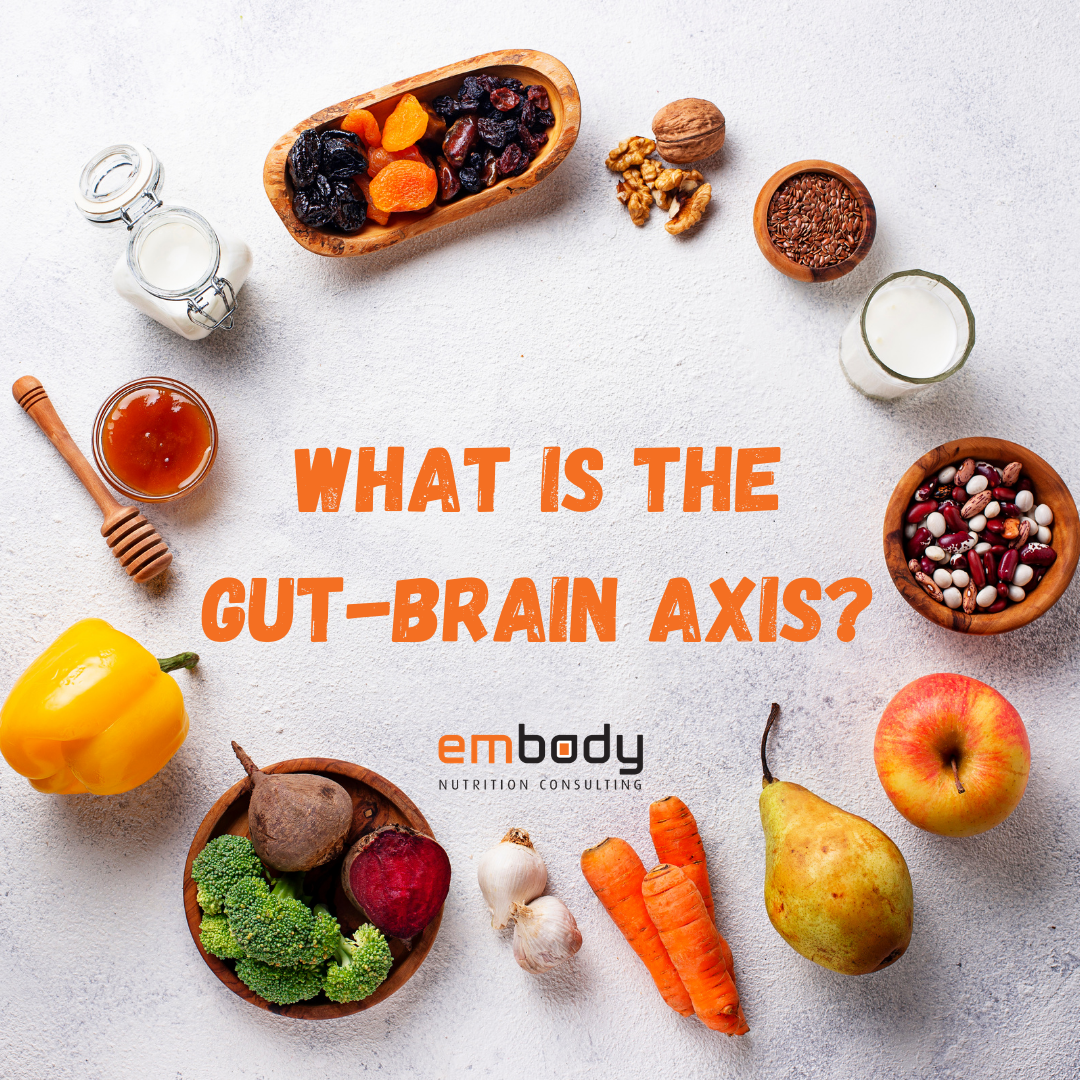Each month, we will be hosting a group coaching session within our Facebook Group and posting the notes here for your reference. You can check out the video here.
This month we are chatting about the Gut -Brain Axis – what it is, why is it important and what are things we can do to improve both our gut and brain health.
1. Very simply, what is the gut brain axis?
The constant 2-way communication that occurs between our gut (including the trillions of microbes that live in there) and our brain.
This communication happens in many ways, including immune, chemical and endocrine pathways.
A lot of the science in this space is pretty new but – you’ve probably felt the gut brain axis connection at some point if you’ve ever had butterflies in the stomach when nervous or excited.
2. What role can diet play in improving our brain health, giving that they are connected like this?
Tapping into this gut-brain connection could play a really important role in our mental health.
Research is showing that the gut bacteria might be implicated in our mental health with different microbe compositions appearing to have an effect on symptoms of mood disorders. We also know gut microbes are responsible for producing various types of neurotransmitters (or chemical messengers) – with several related to our mood.
We’ve also seen that changing our diet can help with mental health conditions and disorders.
A really interesting trial in this space – though not gut-bacteria specific – is the ‘SMILES’ trial. They trialed a largely Mediterranean-style diet in a cohort of people suffering from depression – and found that dietary intervention significantly improved mood.
3. Are there specific foods or groups of foods that are beneficial?
Fibre is #1. Fibre is a type of carbohydrate that is not broken down by the body, so it continues on to meet the gut microbes. Our microbes can break down many fibres, and in this task produce a range of beneficial compounds that our body can use – including Short Chain Fatty Acids. These help keep the gut lining healthy among a whole range of other jobs. The fibre also helps keep bowel motions healthy.
Each plant-based group of foods contains different types of fibres, so the best thing you can do is eat a diverse range of plant-based foods incl fruit, veg, nuts/seeds and grains, as well as herbs/spices. 5% of us eat enough fruit and veg There are also certain types of fibres known as prebiotics that may be particularly beneficial – found in various foods incl. legumes, certain fruit and veg, and grains and nuts.
Probiotics are live microbes that are good for us in some way – commonly taken in capsule form. There are situations in which these can be useful – but they should be treated as medications and used for targeted conditions. However, I would promote inclusion of fermented foods. A lot of the health benefits are anecdotal – and these foods may not even always contain live microbes – but they are typically very healthy foods regardless. Dairy-based fermented foods like yoghurt & kefir in particular have a larger backing of evidence behind them, particularly in improving gut symptoms.
4. What is the impact of stress of the health of our gut?
Stress seems to be related to altered microbe compositions, can potentially impact the health of the gut lining and cause changes to movement of the gut.
An acute example of this can occur when highly nervous or stressed, you may experience what we could call a ‘fight or flight response’.
Blood shunts away from your gut to where it is needed (say your legs so you can run away from a bear), digestion shuts down and the bowel might want to evacuate quickly.
It could also go the other way, in which the bowel becomes sluggish and does not move. Stress is also a key player in Irritable Bowel Syndrome – a more chronic disorder OR miscommunication of the gut-brain axis that results in some unpleasant gut symptoms.
5. What are some ways we can help to reduce the impact of stress on our gut?
Psychological therapy / CBT (cognitive behavioural therapy) techniques.
Relaxation techniques such as meditation.
Yoga.
Hypnotherapy.
6. What are your top 3 tips to improve your gut and brain health that people can start doing today?
Take stress seriously
Eat a really diverse range of plant foods
Exercise in ways you enjoy

